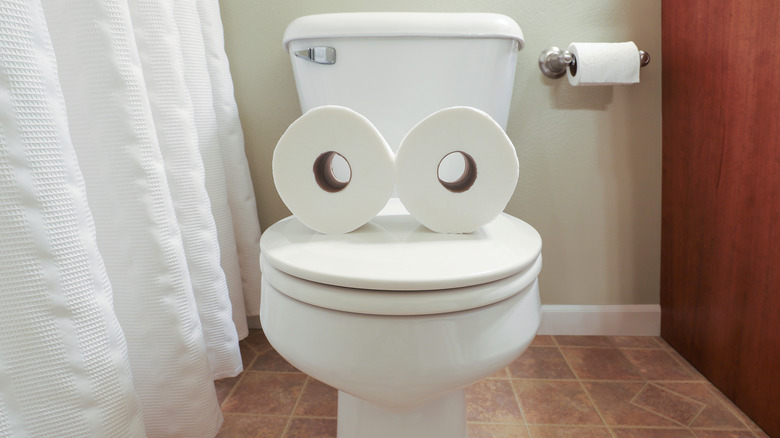How To Stimulate Better Bowel Movements
It may be taboo to talk about poop, but healthy bowel movements are indicative of a healthy body. Whether you're going too much or not often enough, you may be wondering what you can do to balance your bowels and ensure a healthy trip to the toilet each time you go.
The reason why healthy bowel movements are so important is that they can tell you what is going on with your gut health (via Bustle). The significance of your gut health is not to be underestimated, as it affects many aspects of your mind and body, per Healthline.
Gut expert and co-founder of Ixcela, a gut microbiome testing company, Erika Angle, Ph.D., explained to Bustle, "Research is showing that the health of your gut, ultimately the balance and functionality of the trillions of microorganisms that live in your intestines, play an important role in many other systems' health. These include mental health, autoimmunity and immune system health, and energy levels." Now that we understand the impact our gut health has on our bowels and overall well-being, what can we do to help it work more efficiently?
Three ways to ensure healthy bowel movements
Fortunately, there are some simple ways to assist your gut health by way of better bowel movements. The first thing you can do is take a look at how you're sleeping. This is a huge factor when it comes to regularity, according to registered dietitian and nutrition expert, Tanya Zuckerbrot. She told MindBodyGreen, "Changes in sleep patterns can affect our circadian rhythm, which controls both our sleep/wake cycles and our digestion. This may be why most people have their bowel movements in the morning. Any change to your sleep cycle can cause changes in colonic motility, leading to delays in bowel movements."
Besides getting regular shut-eye, taking a probiotic can significantly improve your gut health and trips to the bathroom as well. According to Healthline, probiotics can improve diarrhea symptoms, as well as regulate and improve problems with your digestion by creating a balance of healthy bacteria in your gut.
Intermittent fasting may also help your gut health, per MindBodyGreen. One way you can practice intermittent fasting is to finish your eating for the day around 7 p.m., go to sleep, and then spend your morning drinking water until 11 a.m., when you eat again. Not eating for 16 hours or so may seem extreme, but according to MindBodyGreen, this can help your digestion — and therefore, stimulate a bowel movement — by giving it a much-needed break, as well as allowing you time to start your day by hydrating your body.


